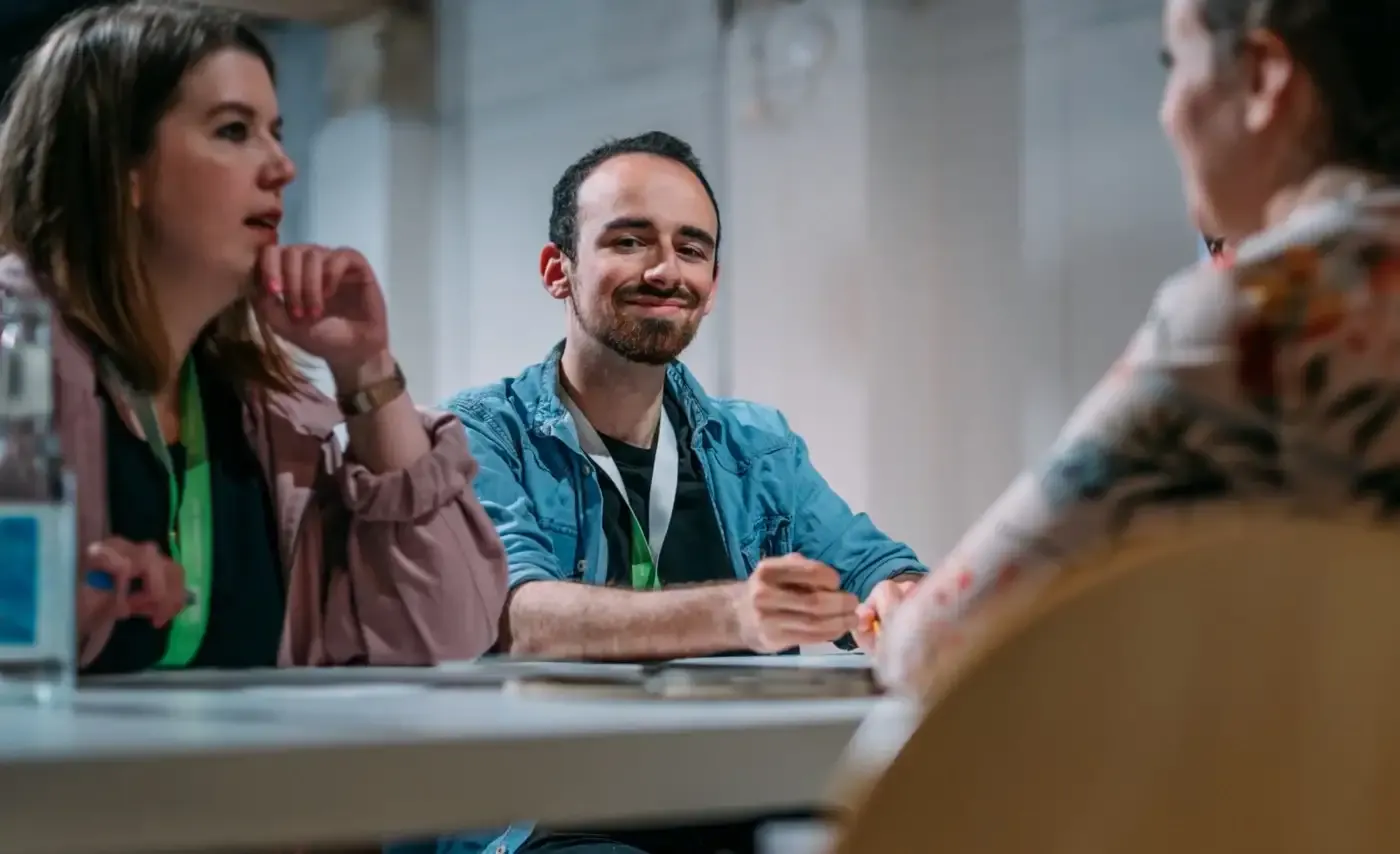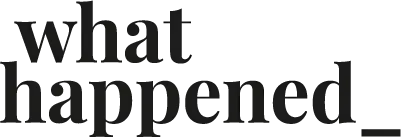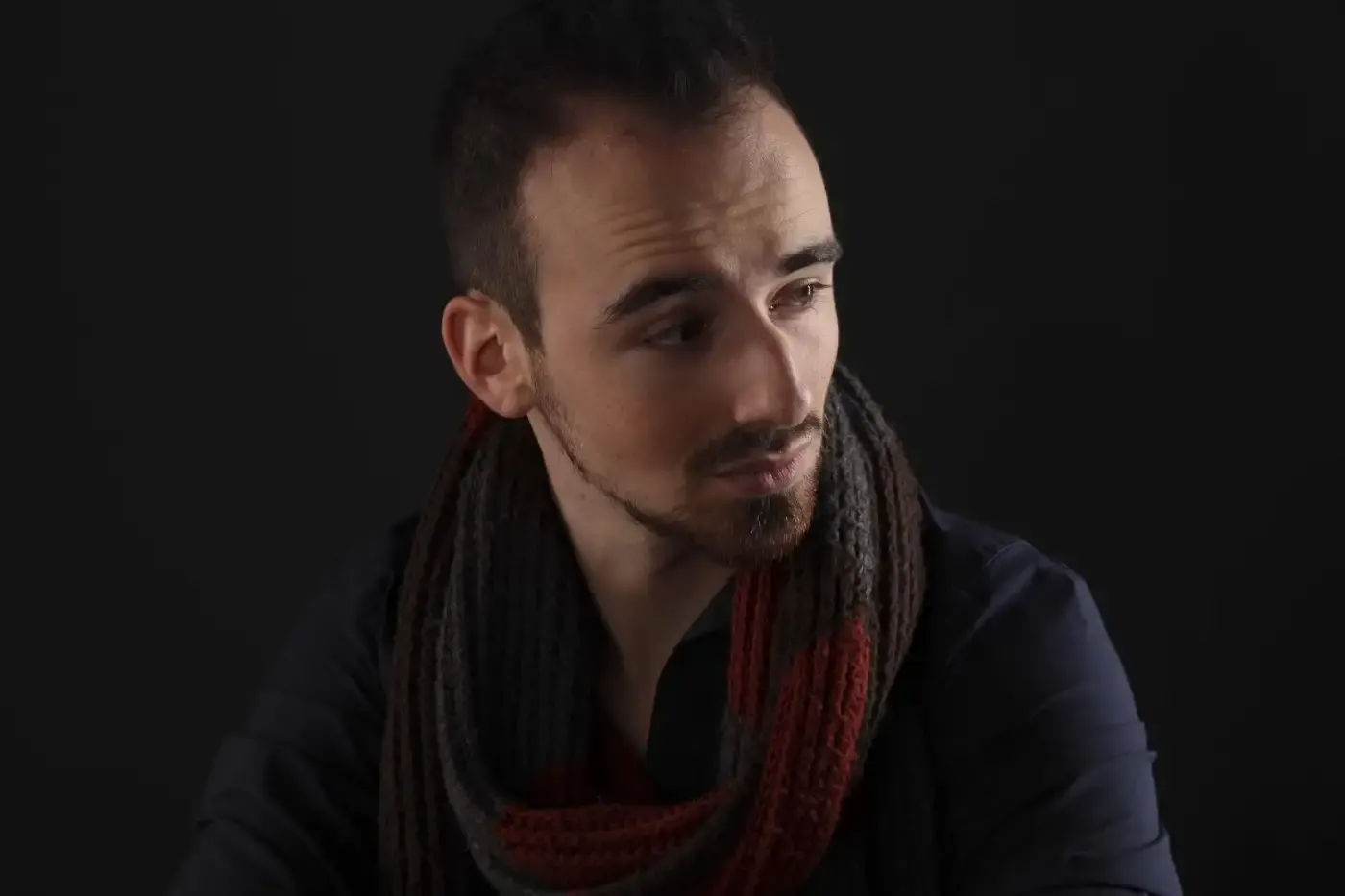No gossip or unnecessary drama: How whathappened uses a clear mission statement to win members
For a long time Dimitri Choufatinski ran his newsletter whathappened (Opens in a new window) (formerly known as theGrind) as a side project, supplying his readers with free news updates every morning. But after some time he found this no longer made financial sense. Because he wanted to keep the newsletter independent and free of advertising, he set up a membership program — with great success. In the guest article Dimitri tells us how he did it.

More than 400 members support whathappened (Opens in a new window) on Steady with over 1.000 € per month.
“We’ll make you the best informed person in the room in just four minutes” and “Stop embarrassing yourself on the subway — switch from Spiegel Online to theGrind”. These are two slogans that do a great job of reflecting the idea of our newsletter (which we have since renamed whathappened): We want to give an extremely quick overview of the most important news of the day and we have no tolerance for gossip, local crime or other unnecessary drama.
whathappened is a morning email that provides information on the day’s news across politics, the economy and the environment, as well as business.
Short, concise summaries give you an overview, while a “more” link behind each summary leads to the BBC, etc., allowing you to delve deeper into a topic. It’s always neutral, free of advertising and with a global perspective.
What sets us apart from other morning briefings that every local newspaper now seems to publish is how strict we are in our selections. With us there is only news, no opinions or feature pages. And we are tough.
Did Hans-Georg Maaßen clear his throat loudly at breakfast time? At ZEIT Online they have a dedicated in-depth live feed with experts; we ignore it. Did an asylum seeker/Nazi punch a Nazi/asylum seeker in the face in Unterhaching? The media conjures up the end of the West / the basic democratic order; we ignore it.

whathappened (Opens in a new window) is a morning e-mail that provides information on current events in politics, the economy and the environment, as well as business.
A clearly defined mission helped thousands of readers get on board
Because our motto is: What is really relevant in order to give you a better understanding of the world? News whose only purpose is to draw up emotions is out. Local crime, protests, polarizing statements — all of this will only appear in our news briefing if it has (or: will very likely have) a sufficiently large political dimension.
With this “mission statement”, we were able to convince thousands of readers almost from the beginning. Our readers appreciate that we always remain neutral and leave the opinion-forming to them.
They appreciate that we work on the basis of data, rather than polarizing statements, because our motto is “Two data points are always better than one”. (Want a real example? Instead of, “Every sixth German cannot afford a holiday!!!” our headline is “The number of Germans who cannot afford a holiday has dropped from 22 to 16 percent”).
And they appreciate how broadly we work, because we can deal with topics from politics to macroeconomics to tech. Anyone who has ever read articles on the startup scene from Spiegel Online will know this is easier said than done.
Conversely, Gründerszene is great for start-up news, but would never receive a gold star for the quality of its political reporting. And when it comes to the economy, especially when it comes to technical things like current account balances (creepy!), national debt (all made up!) or financial policy (diabolical!), unfortunately the majority of the German media landscape will let you down.

Readers appreciate that the whathappened (Opens in a new window) team can handle everything from politics to macroeconomics to tech, says Dimitri Choufatinski.
Thanks to our members, whathappened can be neutral and free of advertising
So who are “we”, exactly? A small team of people with experience in politics, in central banks, in start-ups and more. We run things a bit like the Economist and deliberately don’t put ourselves in the foreground of our journalism. But a few words can’t hurt: I’m Dimitri, I founded whathappened and I’m primarily responsible for ensuring that the briefing arrives in our readers’ inboxes at 6am every day.
Earlier, I worked in foreign policy, development policy, management consultancy and the startup scene. In between, I taught economics. whathappened — originally theGrind — ran for free for some time. But after a while that no longer made financial sense. The effort was too much for it to be free.
Placing advertising in the newsletter seemed like the wrong way to go. It’s much nicer to receive money directly for your work than to get on your knees begging in front of potential advertising partners — plus working with news comes with special demands for independence.
Without Steady, starting a membership program would have been much more difficult
So I decided on a membership program. Setting it up wasn’t really that difficult: I set up a few things — for example, my Steady account. Especially at the beginning, Steady (Opens in a new window) was very useful for trying out a few things without having to put a lot of effort into the infrastructure. Without Steady, the start would have been much more difficult.
After that I wrote an email to my readers. It was just to see how many of my readers would be willing to pay for what used to be free. And it worked out. The fact that enough money came together was a very positive sign for me as a “creator”. Now my team and I can expand the newsletter, both technically and in terms of content.
I am very grateful for the support of my members and will continue to work on recruiting more of them. I want to set up a functioning marketing strategy and form strategic partnerships. As soon as this happens, I will be able to take care of the many ideas I already have for new formats and content, as well as improvements to the current formats. There is no lack of vision, only the need to work within our current reality and see what’s possible next.,


